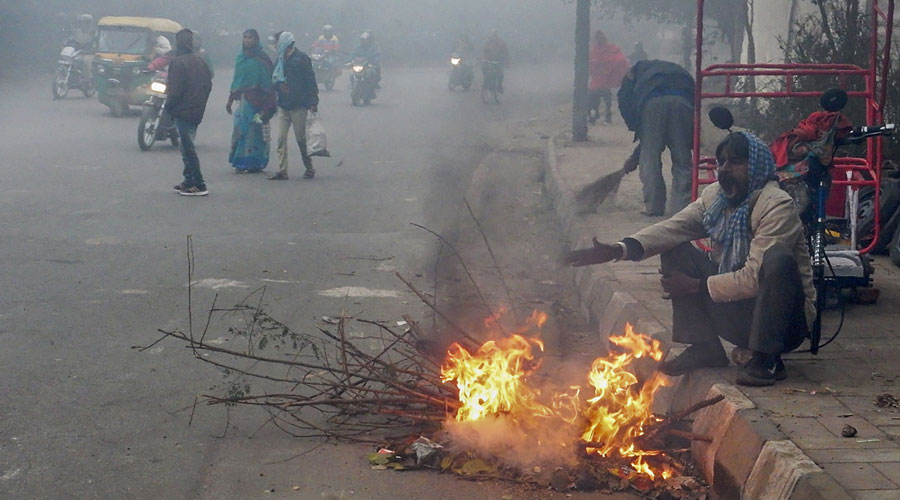Cold wave conditions prevailed in Delhi with the minimum temperature at the Safdarjung observatory, the city's base station, settling at 2.4 degrees Celsius.
It was a notch above Monday's minimum temperature of 1.4 degrees Celsius, the lowest in the month since January 1, 2021.
Foggy weather disrupted road and rail movement in some parts of the northern region. At least 15 trains were delayed by one hour to eight hours due to foggy weather, a spokesperson of the Northern Railways said.
The Palam observatory, near the Indira Gandhi International Airport, recorded a visibility level of 500 metres. According to the weather office, 'very dense fog' is when visibility is between zero and 50 metres, between 51 and 200 metres is 'dense', between 201 and 500 metres 'moderate', and between 501 and 1,000 metres 'shallow'.
Safdarjung had recorded a minimum temperature of 1.1 degree Celsius on January 1, 2021. It logged a minimum of 1.9 degrees Celsius on January 8 this year.
The all-time low of minus 0.6 degree Celsius was recorded on January 16, 1935.
The weather station at Lodhi Road, where the India Meteorological Department (IMD) headquarters is located, recorded a minimum temperature of two degrees Celsius on Tuesday.
The minimum temperature settled at 2.8 degrees Celsius at Ayanagar in southwest Delhi, 2.2 degrees Celsius at the Ridge in central Delhi and 2.3 degrees Celsius at Jafarpur in west Delhi.
Delhi saw an intense cold wave spell from January 5 to 9, the second longest in the month in a decade, according to IMD data.
It has also recorded over 50 hours of dense fog this month so far, which is the highest since 2019.
The meteorological office on Monday said cold wave conditions will abate from January 19 under the influence of two western disturbances which are likely to affect the region in quick succession.
When a western disturbance -- a weather system characterised by warm moist winds from the Middle East -- approaches a region, the wind direction changes.
The chilly northwesterly winds from the mountains stop blowing, leading to an increase in temperatures.
In the plains, a cold wave is declared if the minimum temperature dips to 4 degrees Celsius or when it is 10 degrees Celsius and 4.5 notches below normal.
A severe cold wave is when the minimum temperature dips to 2 degrees Celsius or the departure from the normal limits is by more than 6.4 notches.
Except for the headline, this story has not been edited by The Telegraph Online staff and has been published from a syndicated feed.










